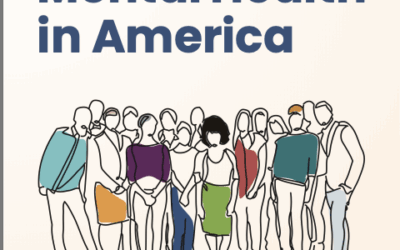Our health includes mental health, and any improvement to Virginia’s ranking of 40th among the states in mental health begins with adopting a state budget that provides health care access to hundreds of thousands more people. When the General Assembly reconvenes on April 11th, our elected representatives have another opportunity to agree on such a plan. Before adjourning their regular session in March, legislators approved several non-budgetary bills related to mental health, two of which exemplify understanding the connection between mental health and health. Although these bills are no substitute for expanding treatment capacity or strengthening needed community services, they are small, hopeful steps forward in changing how our society views mental health.
When a person experiences a mental health or substance use crisis, they often end up in a hospital emergency department. House Bill 1088 (Del. Boysko) requires every hospital with security officers working in the emergency department to establish protocols for them to receive training appropriate to the people served. The training is to be based on a “trauma–informed approach” intended to safely address situations when a patient or other person is experiencing a crisis, or is at risk of harming themselves or others due to a mental illness or substance use.
Anyone providing emergency response to someone in crisis, especially when the responder is carrying deadly force, should have thorough training in mental health and substance use dynamics, as well as de-escalation skills. With the success of Crisis Intervention Team (CIT) training over the years, public law enforcement agencies have recognized the immense value in providing specialized training for police officers on how to interact with someone in a behavioral health crisis. Some localities have expanded eligibility for the training to include more officers and other first responders. However, more training in understanding mental health related issues should be required for all first responders and for private security personnel. This bill is just a start, but the right training saves lives. We hope that more training and more professional groups are included in future legislation.
There would be fewer crisis visits to emergency departments if more Virginians would seek help earlier. Far too many don’t get help because they still have no insurance, and too many who are insured don’t ask for help because they don’t recognize symptoms, they fear being stigmatized or they don’t know what resources are available. Public acceptance requires awareness that mental health is simply part of health, and encouragement to get help at the first signs of a problem. A new law that adds mental health to public school health curriculums helps reinforce this awareness among our youth.
Last year the legislature required school counselors to receive mental health training, but this year’s Senate Bill 953 (Sen. Deeds) and House Bill 1604 (Del. Bell) require that students receive more instruction in mental health. The language states that elementary, middle and high school health instruction “… shall incorporate standards that recognize the multiple dimensions of health by including mental health and the relationship of physical and mental health so as to enhance student understanding, attitudes, and behavior that promote health, well-being, and human dignity.”
The school health instruction bills also require the state Standards of Learning for grades nine and 10 to include mental health. In its review, the Board of Education is to consult with mental health experts.
Concerned students from Western Albemarle High School, passionate about doing something after two friends were lost to suicide, advocated for these bills. Thanks to their initiative, youth across Virginia will be learning more in school about mental health. The result builds a foundation for viewing mental health as part of everyone’s overall health, and helps bring mental health challenges out in the open.
Significant improvement in Virginia’s mental health care system requires a transformation in how we fund services, and also in how we think about mental health. The funding is vital, and should begin with a budget that expands health care access to more people through the Medicaid program. Increasing public understanding of mental health is another challenge. These new laws may be small steps, but they move us closer to viewing mental health as part of health, and to better outcomes for individuals in crisis.
Bruce Cruser, Executive Director
Mental Health America of Virginia



